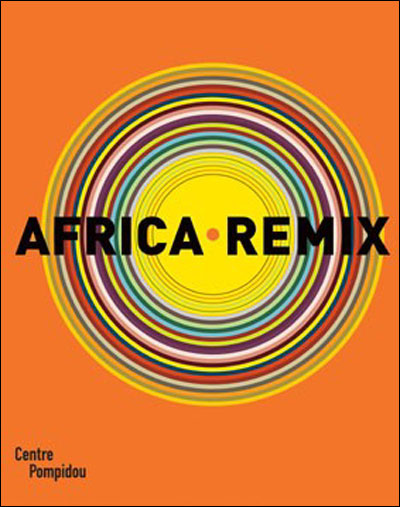 Continued and ended my visit at the Stockholm City Museum and the exhibition 'Stockholm 750 years', an exposé over how Stockholm came to be what it is today.
Continued and ended my visit at the Stockholm City Museum and the exhibition 'Stockholm 750 years', an exposé over how Stockholm came to be what it is today.Stockholm was for the first time mentioned in text in 1252 when Birger Jarl was king.
I also saw a photoexhibition made out of photo's from Gunnar Smoliansky, a famous Swedish photographer, rewarded with the 'Lennart af Petersen'-prize.
Met with Aurore at Cinema Sture for the film 'Tabu' by Vilgot Sjöman.
I also saw a photoexhibition made out of photo's from Gunnar Smoliansky, a famous Swedish photographer, rewarded with the 'Lennart af Petersen'-prize.
Met with Aurore at Cinema Sture for the film 'Tabu' by Vilgot Sjöman.
 This is a film about people we today call HBT (homo-, bi-, and transsexuals).
This is a film about people we today call HBT (homo-, bi-, and transsexuals).Sjöman calls them 'frontier'-people in the film.
A young attorney, Kristoffer, tries to help people with sexual preferences others than heterosexual woman-man relationship.
The attorney himself is trying to hide the fact that he also have other sexual preferences than the heterosexual 'norm'.
Despite this he engages in a relationship with a young, unexperienced woman from a religious nonconformist family. She is not aware of him not being strictly heterosexual.
They marry but she soon finds out that he needs something more exciting than ordinary sex.
The film deals with a lot of different aspects of relationship, the lacking acceptance from society, the inner and external struggle for freedom, the fact that this question is not merely - as it initially have been described - a question of sex per se.
Kristoffer never succeeds in helping this people in their struggle, partly because he is a fraud and not the radical reformer he probably, himself, think he is.
There is a risk that the people depicted in the film becomes somewhat ridiculed though, depending on the way they are described and I don't think this was Sjöman's intentions.
They marry but she soon finds out that he needs something more exciting than ordinary sex.
The film deals with a lot of different aspects of relationship, the lacking acceptance from society, the inner and external struggle for freedom, the fact that this question is not merely - as it initially have been described - a question of sex per se.
Kristoffer never succeeds in helping this people in their struggle, partly because he is a fraud and not the radical reformer he probably, himself, think he is.
There is a risk that the people depicted in the film becomes somewhat ridiculed though, depending on the way they are described and I don't think this was Sjöman's intentions.
Aurore and I end the day at the French Institute (Institut Français) in Stockholm with a lecture by Simon Njami, the Curator (Commissaire général) of the big exhibition 'Africa Remix' at the Museum of Modern Art.
We had been invited by Milkymee (Emilie Hanak), Aurore's friend who works at the French Institute.
Simon Njami talked about how the Western World looks upon Africa and in what way this affects what we see, our preconceived notions about what we think Africa is and who the people(s) living there are.
First of all a lot of people in the west speak of Africa in the terms of one single country.
This is of course totally wrong as it is a continent, as we know, with many different contries, cultures, languages, history, ways of living, beliefs and so forth. It's probably a much more differentiated continent than Europe.
Njami also talked about how journalists and their way of reporting from Africa affects the way we look at this wast continent.
Njami said something like "most people in the World know a lot about how African people die but scarcely how they live" and this is unfortunately true.
We know a lot about the conflicts, poverty, diseases but very little about the daily life and positive development in different African countries.
Can this exhibition in some way change these prejudices?
We had been invited by Milkymee (Emilie Hanak), Aurore's friend who works at the French Institute.
Simon Njami talked about how the Western World looks upon Africa and in what way this affects what we see, our preconceived notions about what we think Africa is and who the people(s) living there are.
First of all a lot of people in the west speak of Africa in the terms of one single country.
This is of course totally wrong as it is a continent, as we know, with many different contries, cultures, languages, history, ways of living, beliefs and so forth. It's probably a much more differentiated continent than Europe.
Njami also talked about how journalists and their way of reporting from Africa affects the way we look at this wast continent.
Njami said something like "most people in the World know a lot about how African people die but scarcely how they live" and this is unfortunately true.
We know a lot about the conflicts, poverty, diseases but very little about the daily life and positive development in different African countries.
Can this exhibition in some way change these prejudices?
(Foto Vilgot Sjöman kopierat från: http://hd.se/multimedia/dynamic/00318/Bild_22_318816d.jpg)
(Bild poster 'Tabu' kopierat från: http://images.filmtipset.se/posters/6787528.JPG)
(Picture of the catalogue 'Africa Remix' taken from: http://multimedia.fnac.com/multimedia/images_produits/ZoomPE/6/0/8/9782844262806.jpg)

No comments:
Post a Comment